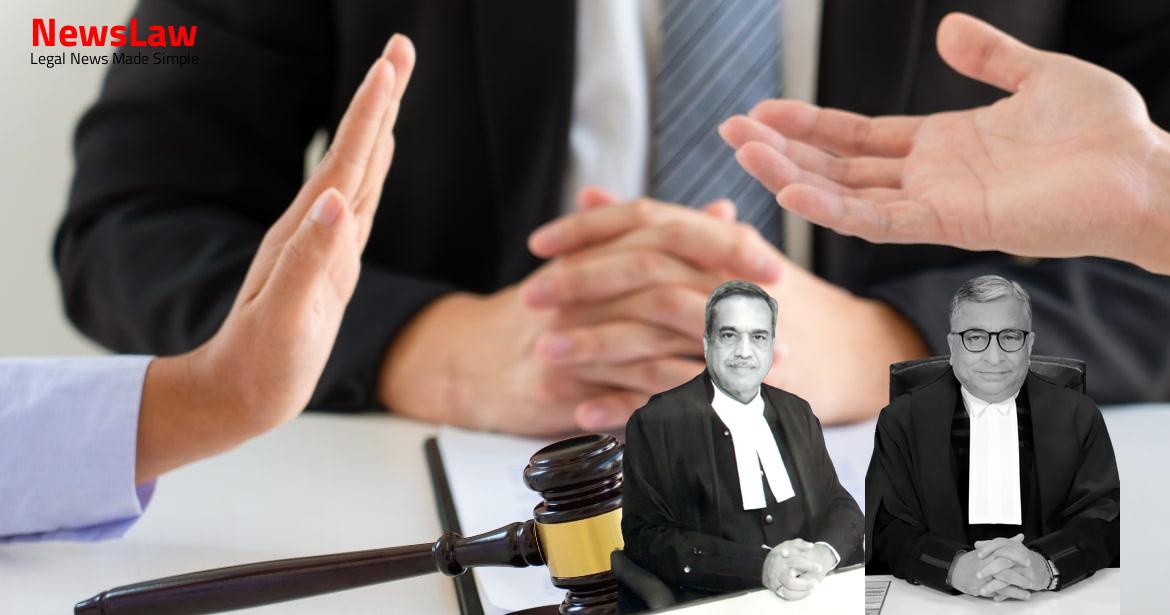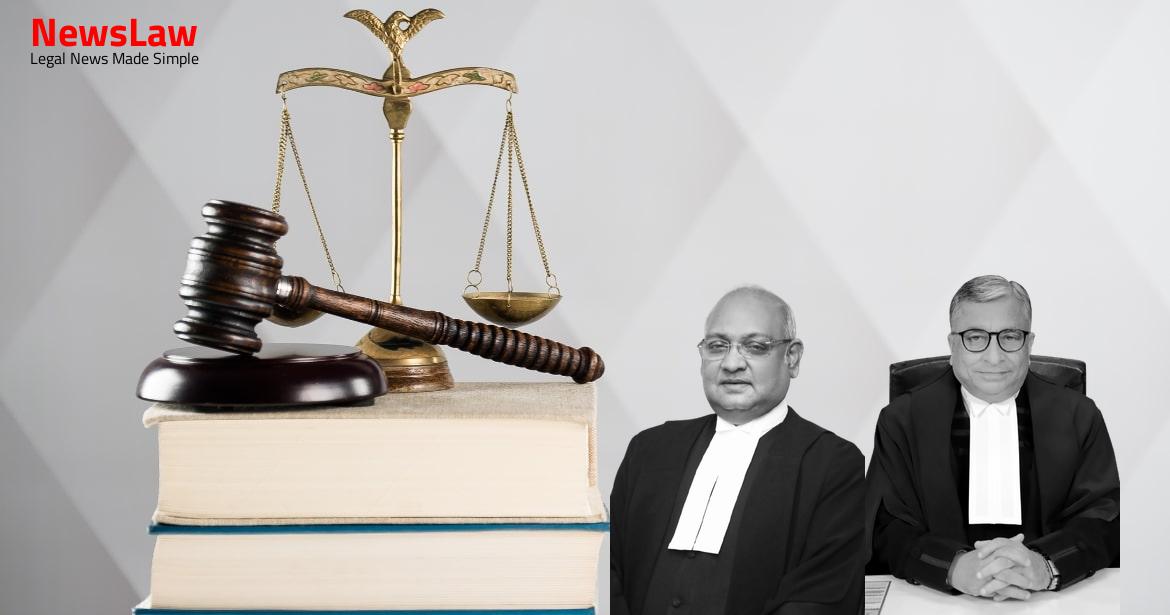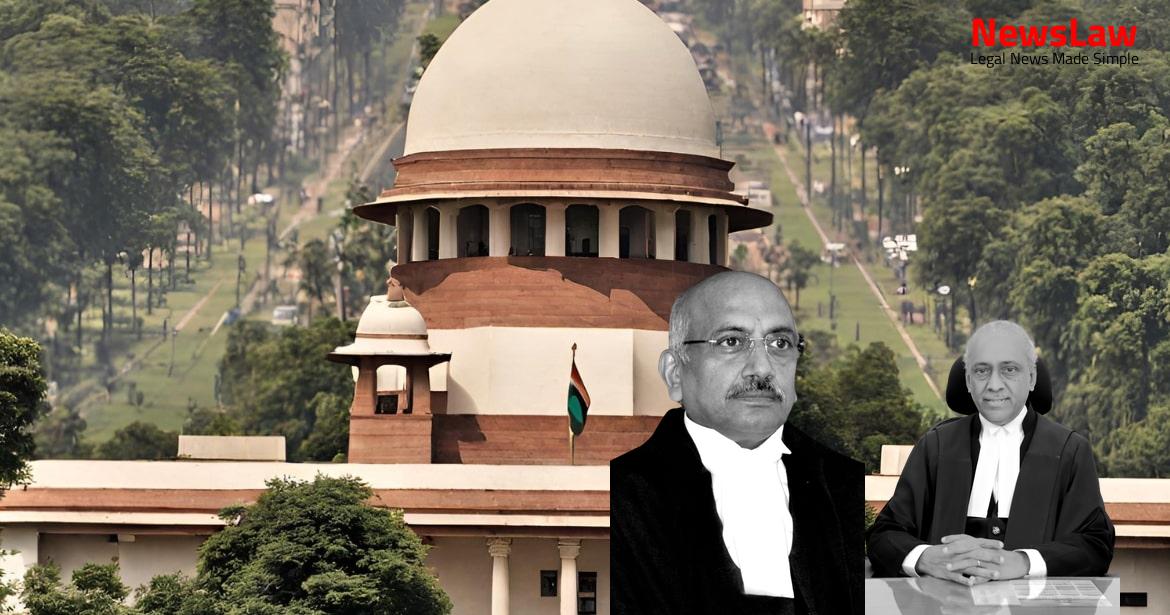Explore the intricate legal analysis conducted by the court regarding procedural compliance in land acquisition cases. The court’s in-depth examination of the rules and regulations governing such processes sheds light on the significance of adhering to established procedures. Stay tuned to discover the implications of this judicial scrutiny on future land acquisition matters.
Facts
- The lands owned by the petitioner were required for constructing Grade Separators on Periyar EVR Salai near various junctions.
- The lands were acquired under the Tamil Nadu Highways Act, 2001.
- Objections were invited under Section 15(2) of the Act and the petitioner submitted detailed objections.
- The Division Bench of the High Court dismissed the appeals, leading to the present Special Leave Petitions.
- The Single Judge’s decision to dismiss the writ petitions was based on a detailed enquiry and considering objections raised by the land owners.
- The Single Judge found no illegality in issuing the notification under Section 15(1) of the Act, 2001.
- The original writ petitioner, represented by Shri Huzefa A. Ahmadi, filed a writ petition contending that the notification under Section 15(1) of the Act, 2001 is in violation of the procedure outlined in Rule 5 of the Tamil Nadu Highways Rules, 2003.
- The original land owners argued that the notification was issued without waiting for a response from the Highways Department and without giving the objectors an opportunity to be heard, thus violating Rule 5.
- On the other hand, the State argued that the notifications under Section 15(1) were issued after considering the report of the Collector on the objections submitted by the original land owners and after receiving responses from the Highways Department.
Also Read: Challenging Legal Presumptions in Negotiable Instrument Cases
Arguments
- Violation of procedure under Rules 5(2) and 5(3) before issuing notification under Section 15(1) of the Act
- Acquisition of petitioner’s land sought in two parts
- Identical and mechanical responses by requisitioning authority to all objectors
- Contention that Rules 5(2) and 5(3) are not enforceable and are empty formalities
- Submission of objections by petitioner on 15.12.2010 for the first part of acquisition
- Failure to forward petitioner’s objections to requisitioning authority for the second part of acquisition
- Petitioner challenged the acquisition of lands under the Tamil Nadu Highways Act, 2001.
- The acquisition was challenged due to non-compliance with the procedure outlined in Rule 5 of Rules, 2003.
- The opinion of the highways authorities of the division concerned was not considered while addressing objections raised by the petitioner.
Also Read: Legal Analysis of Admission Irregularities in Educational Institutions
Analysis
- The Division Bench of the High Court held that Rule 5 is inconsistent with Section 15(2) of the Act, therefore to be ignored.
- The provision allowing the Highways Department to file a statement in response to objections is for their benefit and does not vitiate the acquisition process if not filed.
- Fullest opportunity was given to the land owner to submit objections before the notification under Section 15(1) was issued.
- Rule 5, though not challenged before the High Court, should not have been deemed ultra vires without proper consideration.
- The purpose of Rule 5(2) is to provide the Highways Department a chance to address objections raised by land owners.
- The High Court conducted the necessary enquiry under Section 15(2) before issuing the notification.
- A statement by the Highways Department in response to objections was considered before issuing the notification.
- Public notice must be published in English and Tamil newspapers as well as displayed in specific government offices.
- Objections from interested parties must be considered, and a hearing date should be fixed for further discussion.
- The Highways Department has the opportunity to file a statement of objections and attend the enquiry.
- Evidence can be presented during the enquiry to support objections or the need for land acquisition.
- The Collector or Government will pass an order based on the enquiry and objections raised.
- Rule 5 cannot be said to be inconsistent with Section 15(2) of the Act
- The present Special Leave Petitions have no substance and are dismissed
- The acquisition in question is upheld by the learned Single Judge and the Division Bench of the High Court
- The provision of Rule 5 of the Rules, 2003 is not inconsistent with Section 15(2) of the Act, 2001
Also Read: Quashing of Enhanced Tuition Fee in Private Medical Colleges
Case Title: M. MOHAN Vs. THE STATE GOVERNMENT OF TAMIL NADU (2022 INSC 903)
Case Number: SLP(C) No.-012616-012617 / 2022



